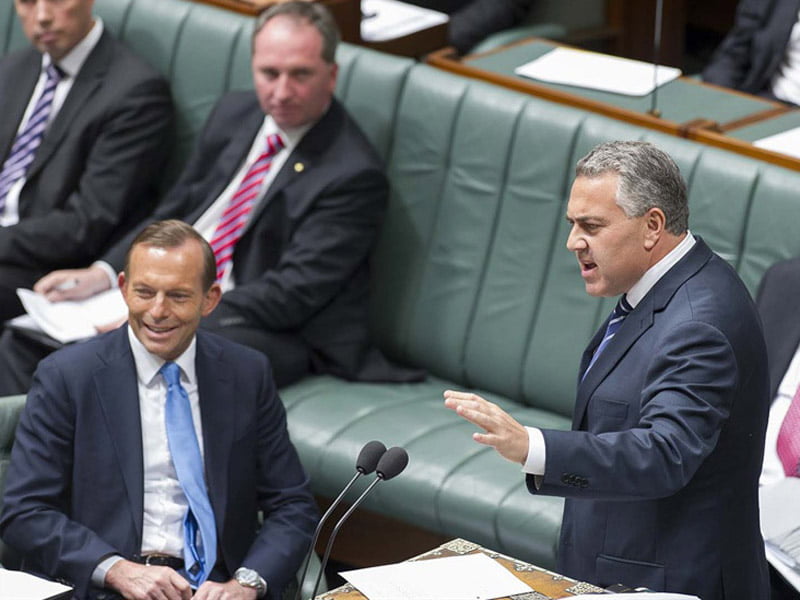Macquarie Telecom has given full voice to a serious problem facing local technology companies. That is, the gaming of the global tax system by multinational companies puts Australia’s home-grown technology players – who pay tax in Australia – at a significant competitive disadvantage.
This is a simple equation. It doesn’t matter how sophisticated and technically competitive your local service is. If you are paying the tax freight in Australia and your overseas competitor is not, you will find it extremely difficult to compete on price.
For many, many local companies, this issue will become an existential problem in a few short years. It has the potential to very quickly hollow-out our locally developed industry, (and to further undermine the tax base!)

Macquarie said in a letter to the Senate Economics Committee this week tha, “an Australian business transacting in Australia and paying an appropriate level of taxation on that transaction must increasingly compete with international businesses paying no tax.” This creates an uneven playing field.
As a tier-one cloud and business telecom provider, Macquarie has more reason to be concerned than most. The ease with which multinational cloud providers can remove tax obligations in Australia is simple and has been well documented.
This does not mean these very clever global tech companies are necessarily more efficient, or because they provide a better service, but because the complex tax minimisations schemes they deploy give them a competitive advantage over their Australian rivals.
Macquarie is quite rightly putting forward policy ideas that aim to level the playing field for local companies.
Specifically, the company wants the Australian Government to consider where a company is domiciled for tax purposes as part of the assessment of ICT procurement decisions. This is a simple process change that at least recognises the issue for what it is: An unfair competitive advantage for offshore companies that is damaging to Australian interests.
The proposal states that where several alternative providers are assessed as equivalent on price, quality and value for money, then the department or agency should inquire about each providers tax domicile.
If the agency then proceeds with a company domiciled offshore ahead of a locally domiciled company, “it should be required to report to the secretary, agency head and Minister, providing the reasons.”
This is not an ideal fix. But it at least prompts an acknowledgement of this damaging issue by the people who spend taxpayer’s funds on ICT goods and services. The Australian Government spends about $6 billion each year on tech operations, and the states collectively spend that much again.
If you take the view that government procurement is an important lever for shaping behaviour – and personally I do – then the Australian Government should look seriously at this proposal.
And frankly, Federal ICT procurement is a bit of an undisciplined mess and needs to be looked at anyway. But now that agencies and departments are routinely signing contracts with suppliers with questionable tax arrangements, a review of procurement practices is overdue.
This is not about parochialism, it is about addressing a competitive disadvantage and a damaging procurement practice. Multinational tech companies play a critical role in the Australian economy, and the contribution they make is enormous. This has to be acknowledged upfront.
But there is a global tax issue that needs to be addressed. The home-grown Australian tech sector can’t wait for a global agreement on these shifty tax arrangements.
The Macquarie proposal has drawn support from other Australian firms. Squiz is a local content software and design specialist that develops its own IP, employs 400 people, has five international offices and earns one-third of its revenue offshore.
Squiz co-founder Stephen Barker says the tax issue is making life increasingly difficult in the Australian market for locals. While the Treasurer Joe Hockey laments his falling tax base and talks tough about profit shifting, the government has been slow to recognise the competitive disadvantage that companies like his now operate under.
“It’s frustrating, because on the one hand you have government saying it is trying to tackle the problem, but on the other, they are funding (through procurement contracts) the companies causing the problem,” Barker says.
“It is very difficult when you are competing with companies that don’t pay tax in this country.”
With offshore operations in the UK, US, New Zealand and Poland, Squiz is a Sydney-headquartered multinational. Barker says there is nothing stopping it from setting up the same clever tax arrangements as others. It could transfer its IP offshore, for example, and license it back to the Australian operation.
“There is no reason for us not to do exactly the same thing – it just doesn’t feel right. At the same time, we don’t want to go out of business,” Barker said.
“Right now, this (tax) issue is a bit of a thorn in the side. But eventually it’s going to become a pain in the arse and we’ll be forced to take a very close look at it again.”
That’s a dismally depressing scenario – the prospect of Australia not only losing a smart, innovative tech company that has grown to scale, but potentially losing a taxpayer too! And these are conversations being had by local tech service providers all over the country.
No-one is suggesting that there are simple answers to this vexing issue. But it must be recognised that this is not simply a burden for Joe Hockey in relation securing a budget surplus.
It is a problem that is damaging our home-grown technology sector.
Do you know more? Contact James Riley via Email.

